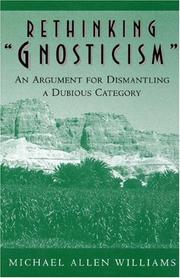| Listing 1 - 2 of 2 |
Sort by
|
Multi
ISBN: 1322421250 9042038918 9401211736 9789401211734 9789042038912 Year: 2014 Publisher: Amsterdam/New York Rodopi
Abstract | Keywords | Export | Availability | Bookmark
 Loading...
Loading...Choose an application
- Reference Manager
- EndNote
- RefWorks (Direct export to RefWorks)
Scottish Medicine and Literary Culture, 1726–1832 examines the ramifications of Scottish medicine for literary culture within Scotland, throughout Britain, and across the transatlantic world. The contributors take an informed historicist approach in examining the cultural, geographical, political, and other circumstances enabling the dissemination of distinctively Scottish medico-literary discourses. In tracing the international influence of Scottish medical ideas upon literary practice they ask critical questions concerning medical ethics, the limits of sympathy and the role of belles lettres in professional self-fashioning, and the development of medico-literary genres such as the medical short story, physician autobiography and medical biography. Some consider the role of medical ideas and culture in the careers, creative practice and reception of such canonical writers as Mark Akenside, Robert Burns, Robert Fergusson, Sir Walter Scott and William Wordsworth. By providing an important range of current scholarship, these essays represent an expansion and greater penetration of critical vision.
Medicine -- Scotland -- History. --- Medicine. --- Public health -- History -- Scotland. --- Literature --- History, Modern 1601 --- -Humanities --- History --- History, 18th Century --- Medicine in Literature --- History, 19th Century --- Medicine --- Health & Biological Sciences --- History of Medicine --- History. --- Clinical sciences --- Medical profession --- Literature and medicine --- Medicine in literature. --- Medical care in literature --- Medicine and literature --- Human biology --- Life sciences --- Medical sciences --- Pathology --- Physicians --- Health Workforce --- Literature and medicine. --- Scotland. --- Caledonia --- Ecosse --- Schotland --- Scotia --- Škotska --- Sŭkʻotʻŭlland --- Great Britain --- literature --- medical ethics --- literary culture --- scotland --- medicine --- Anatomy --- Blackwood's Magazine --- Guillotine --- Metempsychosis --- Phrenology --- Physiology --- Pythagoras

ISBN: 0691005427 0691011273 1400822211 1282753193 9786612753190 1400813832 9781400822218 1400808537 9780691011271 Year: 1999 Publisher: Princeton, N.J. : Princeton University Press,
Abstract | Keywords | Export | Availability | Bookmark
 Loading...
Loading...Choose an application
- Reference Manager
- EndNote
- RefWorks (Direct export to RefWorks)
Most anyone interested in such topics as creation mythology, Jungian theory, or the idea of "secret teachings" in ancient Judaism and Christianity has found "gnosticism" compelling. Yet the term "gnosticism," which often connotes a single rebellious movement against the prevailing religions of late antiquity, gives the false impression of a monolithic religious phenomenon. Here Michael Williams challenges the validity of the widely invoked category of ancient "gnosticism" and the ways it has been described. Presenting such famous writings and movements as the Apocryphon of John and Valentinian Christianity, Williams uncovers the similarities and differences among some major traditions widely categorized as gnostic. He provides an eloquent, systematic argument for a more accurate way to discuss these interpretive approaches. The modern construct "gnosticism" is not justified by any ancient self-definition, and many of the most commonly cited religious features that supposedly define gnosticism phenomenologically turn out to be questionable. Exploring the sample sets of "gnostic" teachings, Williams refutes generalizations concerning asceticism and libertinism, attitudes toward the body and the created world, and alleged features of protest, parasitism, and elitism. He sketches a fresh model for understanding ancient innovations on more "mainstream" Judaism and Christianity, a model that is informed by modern research on dynamics in new religious movements and is freed from the false stereotypes from which the category "gnosticism" has been constructed.
Gnosticism. --- Rome --- Religion. --- Gnosticism --- 273.1 --- 273.1 Gnosis. Gnosticisme --- Gnosis. Gnosticisme --- Religion --- Cults --- Rome - Religion --- Against the Galilaeans. --- Agrippa Castor. --- Anchorite. --- Anthropomorphism. --- Anti-Judaism. --- Antinomianism. --- Antipope. --- Apocalypse. --- Apocrypha. --- Apocryphon. --- Apostasy. --- Asceticism. --- Blasphemy. --- Borborites. --- Cainites. --- Catharism. --- Celibacy. --- Cerdo (gnostic). --- Cerinthus. --- Christian Identity. --- Christian fundamentalism. --- Christianity. --- Church Fathers. --- Clement of Alexandria. --- Consubstantiality. --- Contra Celsum. --- Creation myth. --- Demiurge. --- Demonization. --- Dialogue with Trypho. --- Divine Spark. --- Doctrine. --- Elohim. --- Epiphanes (gnostic). --- Epistle to the Laodiceans. --- Ernst Troeltsch. --- Exegesis. --- Exorcism. --- False prophet. --- God. --- Good and evil. --- Gospel of Eve. --- Gospel of Philip. --- Heresy of the Free Spirit. --- Heresy. --- Heterodoxy. --- Holy Book of the Great Invisible Spirit. --- Ideal type. --- Incorruptibility. --- Infidel. --- Irenaeus. --- Jews. --- Judaism. --- Judas Iscariot. --- Justification (theology). --- Justin Martyr. --- Manichaeism. --- Marcion of Sinope. --- Marcionism. --- Martyr. --- Metempsychosis. --- New religious movement. --- Nicolaism. --- Orthodox Judaism. --- Plotinus. --- Predestination. --- Problem of evil. --- Pseudo-Philo. --- Puritans. --- Pythagoreanism. --- Reform Judaism. --- Religious text. --- Renunciation. --- Sacred prostitution. --- Satan. --- Sect. --- Secularization. --- Self-denial. --- Sethianism. --- Sexual Desire (book). --- Sexual abstinence. --- Simon Magus. --- Skepticism. --- Sophia (Gnosticism). --- Spiritual marriage. --- Spirituality. --- Superiority (short story). --- Tertullian. --- The Other Hand. --- Theodicy. --- Theodotus of Byzantium. --- Theology. --- Thou shalt not commit adultery. --- Thou shalt not covet. --- Tractate. --- Wickedness. --- Writing. --- Zostrianos.
| Listing 1 - 2 of 2 |
Sort by
|

 Search
Search Feedback
Feedback About
About Help
Help News
News